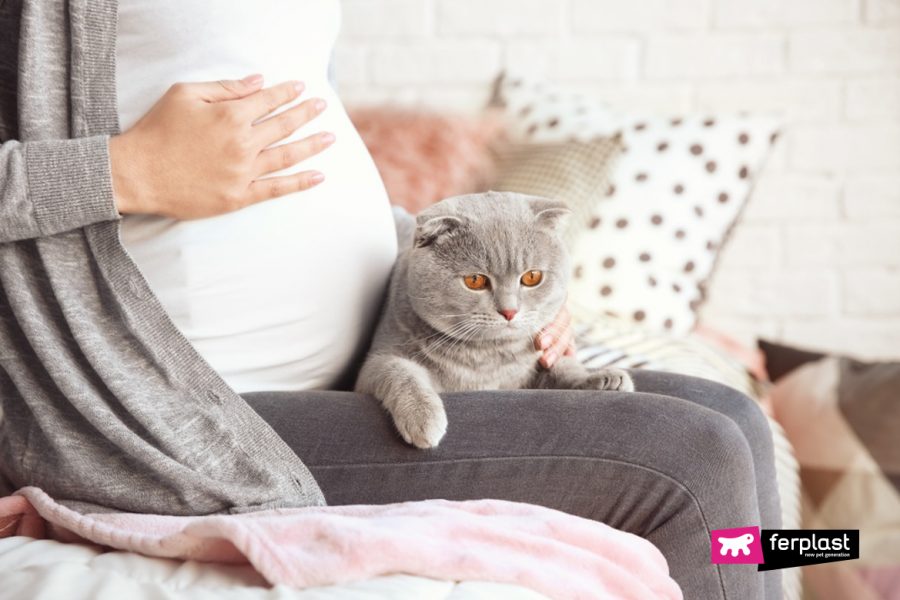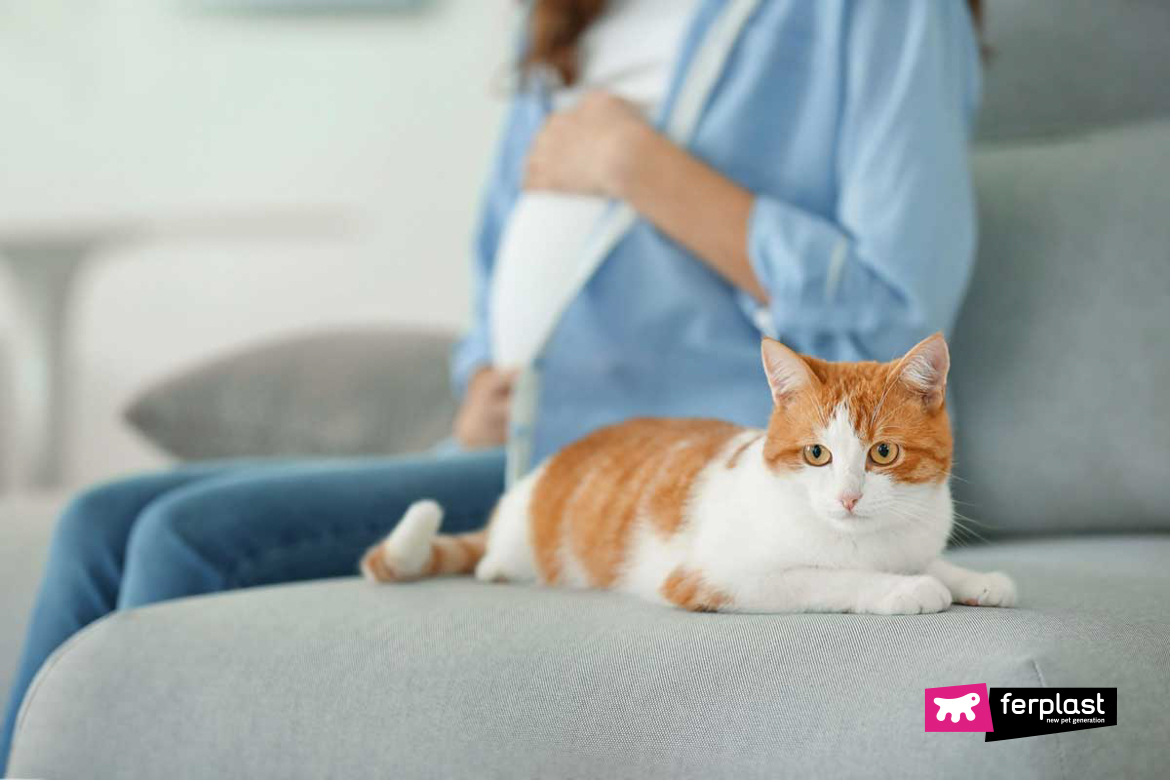One of the most heated debates when it comes to pregnancy is whether or not pets should be kept in the home, especially cats. Felines are considered the foremost spreaders of toxoplasmosis, an infective disease that can infect women during their pregnancy and thus affect the development of the foetus. So the question is, do we keep cats at home during pregnancy or not?
What is toxoplasmosis
Toxoplasmosis is an infective disease brought on by toxoplasma gondii parasites, which live within the cat’s intestine, and other places. It is important to note that the cat is not the carrier of toxoplasmosis, but the parasite in its faeces. For a cat to have been infected, it must have eaten raw meat, like birds or rodents, who in turn have been infected by the parasite.
How toxoplasmosis is transmitted
Pregnant women can contract toxoplasmosis through contact with infected faeces – not just by touching the cat, let that be clear – but also by touching contaminated ground or eating cured meats or even raw vegetables that haven’t been properly cleaned. Toxoplasmic eggs have a 2 to 3 day incubation period inside the cat’s body and then require 24 hours to become infective once excreted. This is when the pregnant woman can become infected by touching the faeces with her hands and then accidently touching her mouth or eyes.
How to avoid contracting toxoplasmosis
Getting the cat out of the house does not prevent the illness! All you have to do is take some simple precautions to drastically reduce any chance of contracting it.
1) clean the cat’s litter box every day;
2) always wear latex gloves when doing so;
3) always wash your hands with warm water and soap afterwards;
4) have someone else clean the litter box;
5) do blood tests on the cat to establish whether or not it is infected.
If your cat lives indoors with you and you are sure it does not hunt small rodents in the garden, then you can rest assured. If the cat spends a great deal of time out of doors then you should take a few simple precautions, normal hygienic practices go far in reducing the risk of contagion. Feed your cat kibbles or well cooked food.
Having a cat at home is good for everyone’s good mood. Cuddling a cat and listening to its purring gives a deep sense of peace as you wait for your child to be born!



